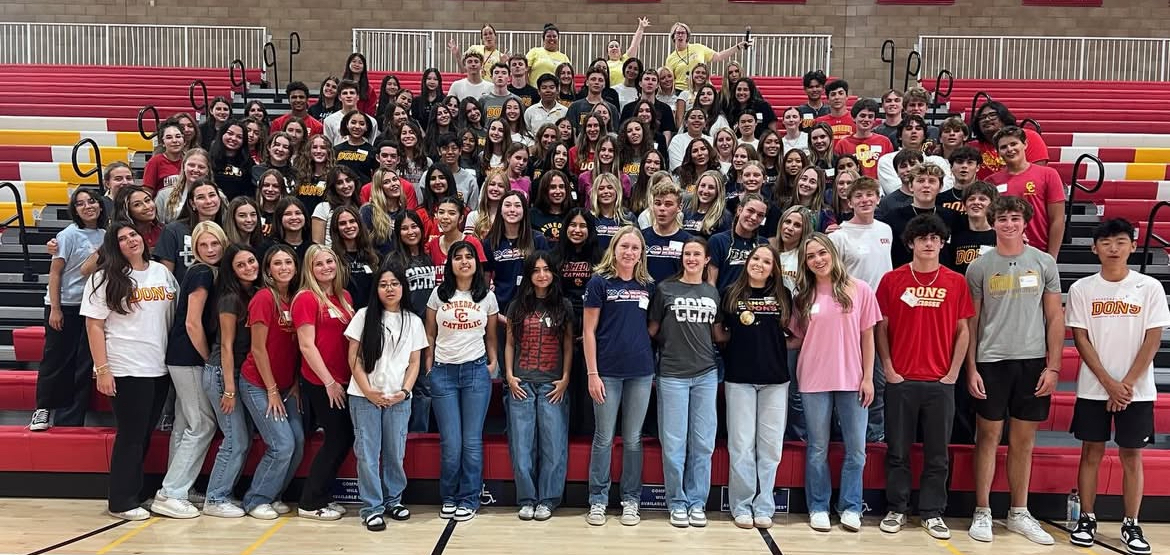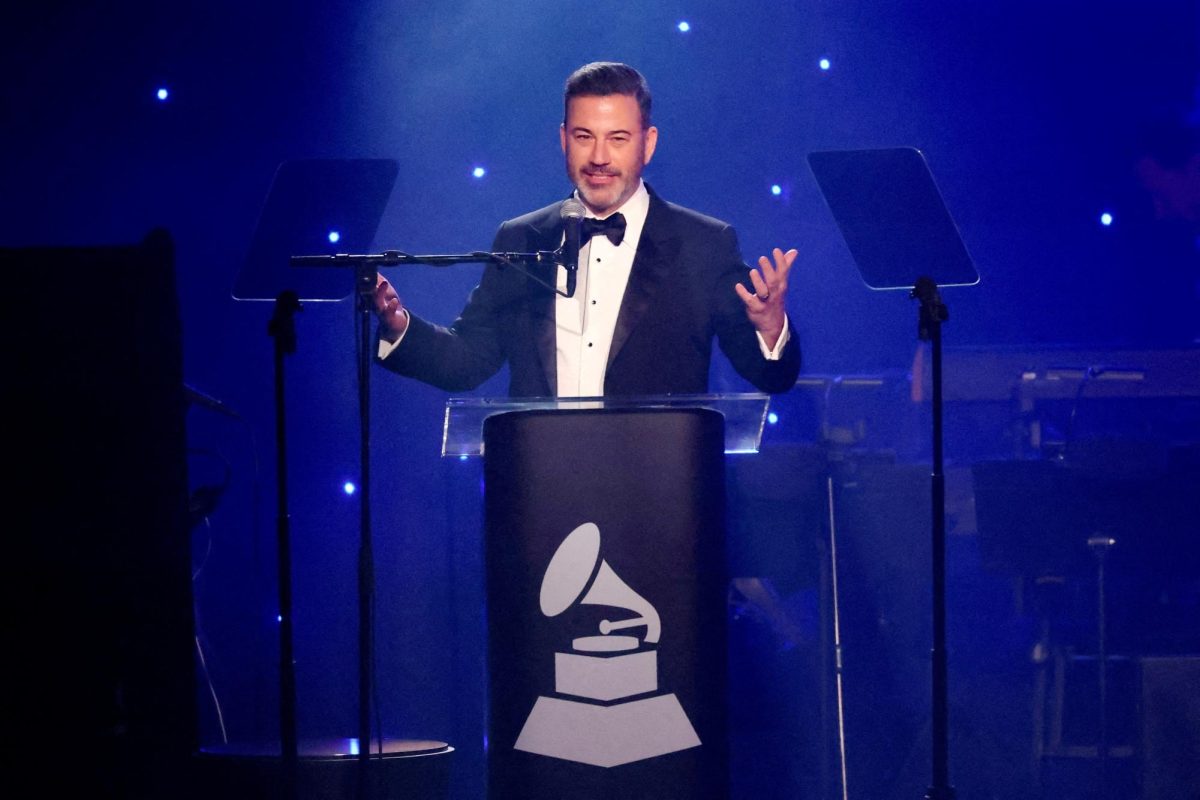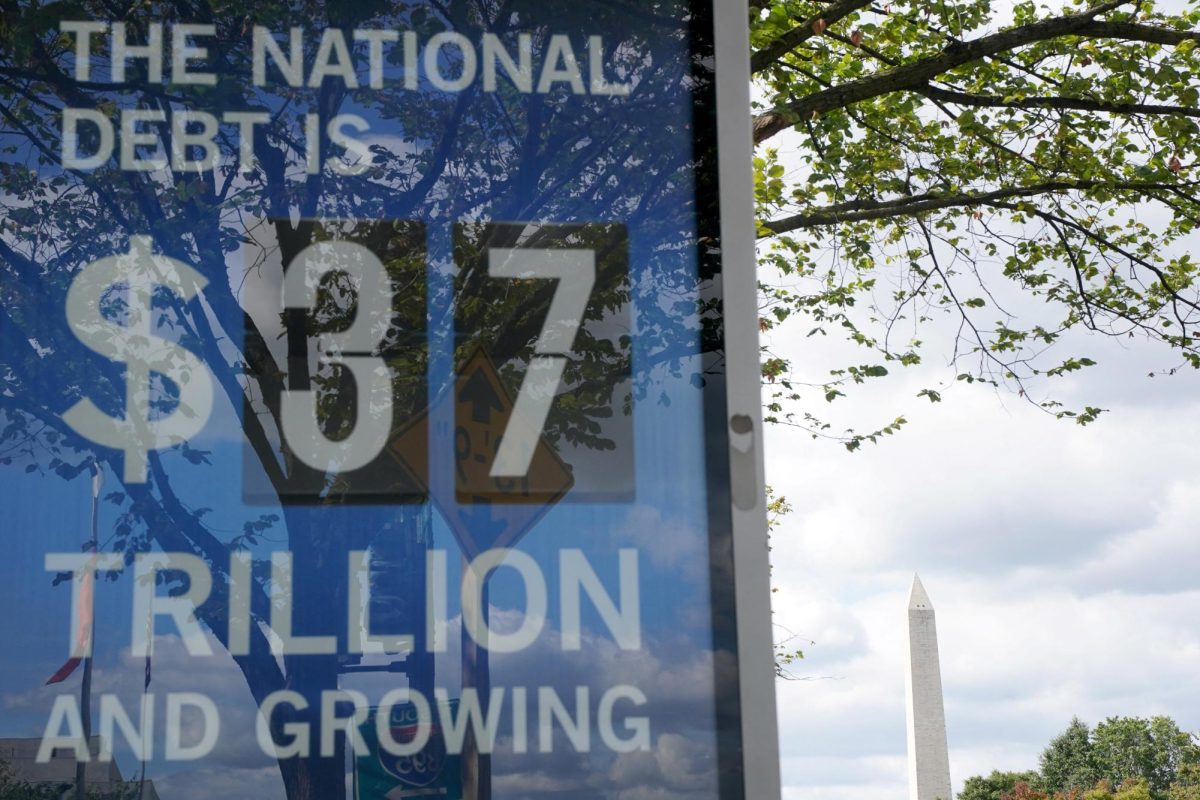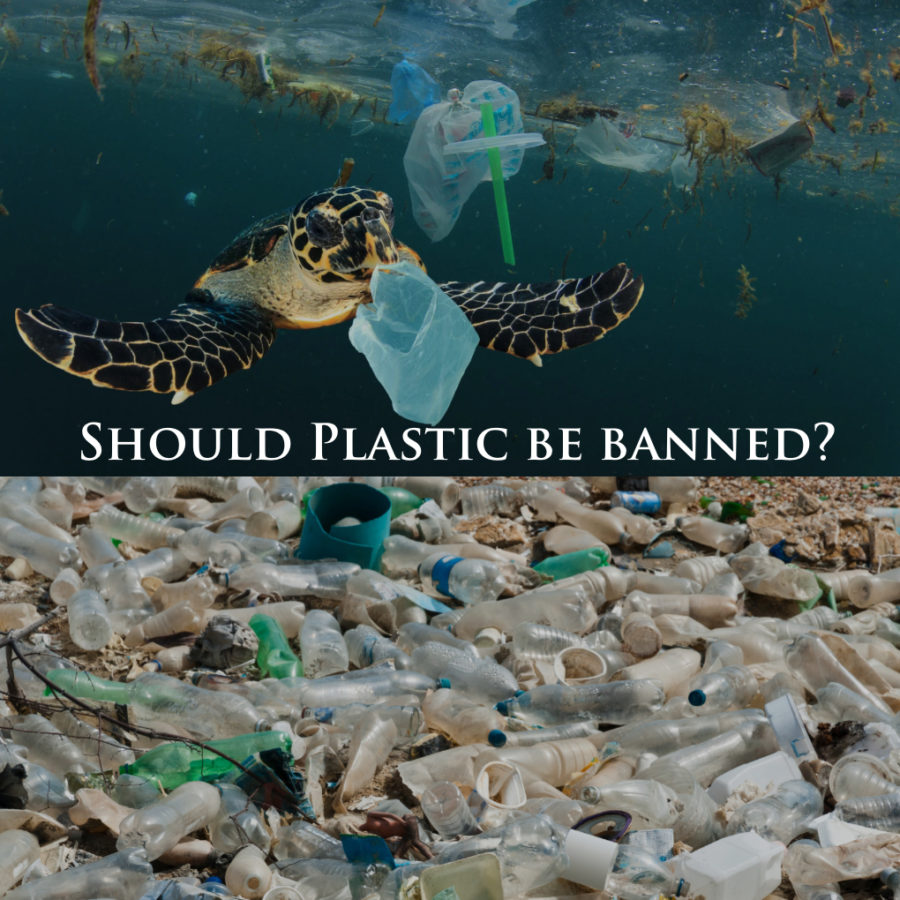Should Plastic Be Banned?
Environmentally healthy resources for usage of packaging? Banning plastic for good? There are different opinions about this topic, most are just talks of fixing the pollution problem with plastic, yet nothing has begun to be done about it.
So why is no one doing anything about it? Do we people actually care about our future? We should, because our lives rely on how fast we can fix this pollution problem occurring in the North Pacific, Indian Ocean, North Atlantic, the South Pacific, the South Atlantic, and the Mediterranean Sea.
Ocean pollution is a mixture of a lot of different varieties of things. Being made up of “mercury, plastic, waste, manufactured chemicals, petroleum waste, agricultural runoff, and biological threats, like harmful algal blooms”, as stated by Megan Avakian, in her article called “New Study Finds Ocean Pollution a Threat to Human Health”. Land pollution on the other hand is a mixture of not only plastic but also, “ solid and liquid waste materials that contaminate groundwater and soil”, as stated by the Texas Disposal System.
With this information of what our pollution causes can ultimately be the quite literal definition of “stabbing ourselves in the back”. Examples of that would be the fish we constantly consume, for example tuna. Which contains mercury, and stores mercury in its body as it grows and eats, and results with it being on our table, whether cooked or raw. Because of such pollution that we create, we not only hurt or pose a threat to ourselves but those animals and environments surrounding us. Plastic continues to kill not only ocean life but also land animals, sea turtles, whales, fish, all of them stuck and killed in plastic utensils and packaging. Same thing for land animals, such as animals trapped in plastic containers and or wrapping. Birds eating plastic thinking it’s food, and/or becoming trapped in it and harming itself while trying to get out.
So what about plastic, why and how is it a massive pollution source? Plastic is not biodegradable, meaning it takes a while to break down, and it doesn’t completely disappear, “the production of biodegradable plastics jumps from 1.5M metric tons to almost 5.3M in the coming years, understanding exactly how these materials are helping—or hurting—the environment is critical”, as stated by World Wide Life. When it ends up in an ocean and forests, plastic is eaten by animals, what also happens in the ocean is that most plastic builds up creating these clots floating in the ocean. This could cause a variety of health issues, which often can result in death, could ultimately lead to not attaining cancer when ingested. Unfortunately the rate for recycling plastic is about 5%, which is extremely low.
Besides ocean plastic pollution, from the factories that create the plastic, it also affects our daily lives on land and at sea. Have you noticed how the larger cities such as Los Angeles, differ from the suburb areas? It’s distinction is even visible from afar, when driving to Los Angeles you can see massive clouds of smog, that’s all the Carbon dioxide, floating in the environment. While driving into the suburbs, there is no such clouds and the air is visibly much cleaner than in Los Angeles. In other words the smog is, “Greenhouse gases trap[ed] heat and make the planet warmer[…] The largest source of greenhouse gas emissions from human activities in the United States is from burning fossil fuels for electricity, heat, and transportation”, as stated by EPA (Environmental protection agency).
So what can we do to fix not only the air pollution but most importantly the plastic problem, including ocean pollution? Well for starters what we could do, would be to eliminate our plastic usage from our everyday life, and instead, substitute it with eco-friendly materials, such as paper and wood. Another way of fixing this problem would be to build factories to recycle and reuse plastic waste, and production of eco-friendly packaging, that if decomposed can help the growth of plants and help the environment flourish. As well as, promoting ocean/beach cleanups, creating voluntary groups of people that would help keep our environment safe and clean, and also promoting it in all schools.
But how can we students of Cathedral help support the ban of plastic, and the promotion of saving the environment? Well a good way if no one has noticed there is a club called Surf Rider Foundation, this club supports beach cleans, removing plastic and helping to decrease the amount of pollution. They create a support team that helps benefit and save our environment, and this is an example of what we as a student section should be caring about and supporting. Ultimately plastic is an ultimate source of land and ocean pollution, and should be banned.

Hi, I’m Nicole Nazemnikova. I am a beat editor of World News and CCHS Sports as well as the photographer for sports on our campus. I write interesting...





















































